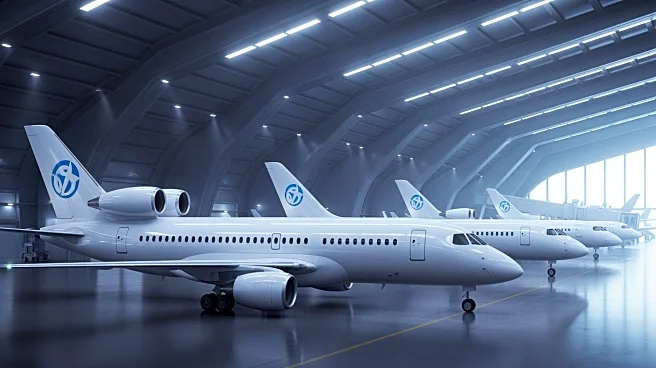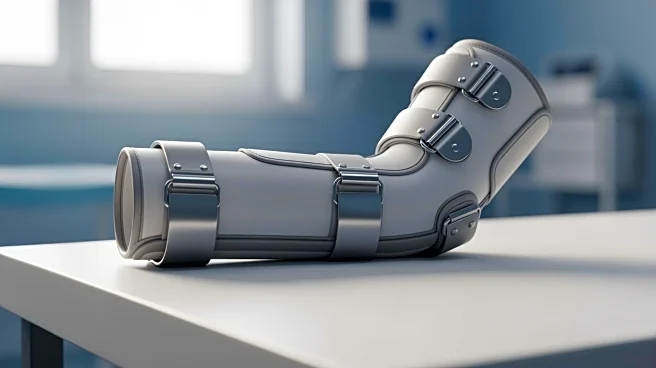What's Happening?
Abra Group, a South American airline conglomerate, has announced a significant expansion of its fleet with the addition of 50 A320neo aircraft and up to seven A330neo widebodies. This move is aimed at addressing
the growing demand for widebody flying, as stated by the company's CEO, Adrian Neuhauser. The group, which includes Avianca Group, GOL, and Spain's Wamos Air, plans to utilize these aircraft based on market and financial conditions upon delivery. Currently, GOL operates exclusively Boeing 737 narrowbodies, while Wamos provides widebody wet-lease services with a limited fleet of A330s. Avianca Group's fleet includes a mix of Airbus narrowbodies and a few widebody aircraft. The new order is part of Abra's strategy to increase its widebody exposure, which Neuhauser identified as underweight prior to their investment in Wamos. The company expects the first deliveries from this order later this year.
Why It's Important?
The expansion of Abra Group's fleet is significant for several reasons. Firstly, it reflects the increasing demand for widebody aircraft in the aviation market, which can accommodate more passengers and cargo over longer distances. This move positions Abra Group to better compete in the international market, potentially increasing its market share and revenue. Additionally, the investment in new aircraft aligns with the group's strategy to modernize its fleet, improve fuel efficiency, and reduce operational costs. The decision to expand the fleet with Airbus aircraft also highlights the competitive dynamics between major aircraft manufacturers, as Abra continues to diversify its fleet beyond Boeing models. This expansion could have broader implications for the aviation industry, influencing fleet strategies and market competition.
What's Next?
Abra Group is expected to begin receiving the new A320neo aircraft later this year, with deliveries aligning more closely with the company's operational calendar. As the new aircraft are integrated into the fleet, Abra will likely focus on optimizing routes and expanding its service offerings. The addition of widebody aircraft may enable the group to increase its long-haul flight capacity, potentially opening new international routes. Stakeholders, including airline operators and passengers, may anticipate improved service quality and expanded travel options. The aviation industry will be watching closely to see how Abra's fleet expansion impacts its competitive positioning and market dynamics.
Beyond the Headlines
The decision to expand with Airbus aircraft may also have implications for the company's environmental strategy. Newer aircraft models like the A320neo and A330neo are designed to be more fuel-efficient, which could help Abra Group reduce its carbon footprint and align with global sustainability goals. This move may also influence other airlines to consider similar fleet upgrades to meet environmental standards and improve operational efficiency. Additionally, the expansion could lead to increased employment opportunities within the group, as more aircraft require additional crew and maintenance personnel.









